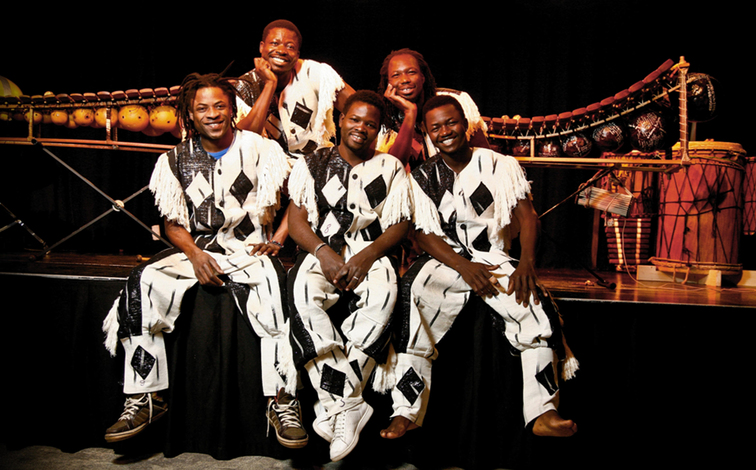Percussionist and composer Mamadou Diabaté was born in Wagadugu, Burkina Faso in 1973. He began his musical training at the age of five with his father Penegue Diabate and three years after that, he learned from other skilled balafon players.
In 1988 and 1998 he won first prize at the National Culture Week of Burkina Faso. In 2000, Diabaté moved to Vienna, Austria. He released his debut album Sababu Man Dogo (2001).
Diabate’s second album, Keneya, was the first recording of the traditional balafon music of the Sambla people, a tonal language translated into music (known as surrogate speech).
Mamadou has collaborated with musicians from various backgrounds, including Cheick Tidiane Seck, Habib Koité, Sigi Finkel, and Wolfgang Puschnig, and appeared at many prestigious international world music and jazz festivals.
He founded Sababu, a primary school in Bobo-Diulasso, which has been operating since 2010. The school, where poor children are taught for free, is a modern version of the traditional griot schools.
Since 2016 he has worked with Laura McPherson at Dartmouth College on the research and documentation of the Sambla balafon language.
In 2016, he was made knight of the National Order of Burkina Faso, and in 2019, he received the Best International Artist award of Burkina Faso.
Discography
Sababu Man Dogo (Extraplatte, 2001)
Keneya (Extraplatte, 2002)
Sira Fila (Extraplatte, 2003)
Folikelaw (Extraplatte, 2005)
Kamalenya (Extraplatte, 2008)
Sambla Fadenya: The Art of Sadama Diabate (Extraplatte, 2009)
Tusia Fadenya: The Art of Daouda Diabate (Extraplatte, 2009)
Yala (Extraplatte, 2010)
Fenba (Extraplatte, 2010)
Kanuya (Extraplatte, 2011)
Mutua (Hoanzl, 2012)
The Snow Owl: Normas 2013
Masaba Kan (Jazzhaus Records, 2014)
Barokan, with Dramane Dembele (Sababu Records, 2015)
Douba Foli: Noir et Blanc (ATS Records, 2016)
Nakan (Lotus Records, 2019)


